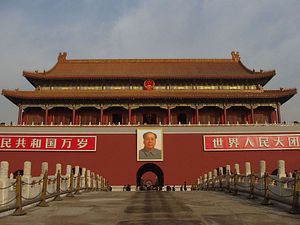On October 28, 2016, China was re-elected as a member to the UN Human Rights Council for the fourth time since 2013. Chinese media suggests that the council seat means an expectation from the international community that China will bring about more achievements in the field of human rights. However, such expectations seem quite low in the West. China’s re-election to the UN Human Rights Council was questioned in the West, with critics describing the UN council as “a rogues’ gallery of rights abusers,” according to the New York Times.
This is a long-existing divergence between China and the West on the topic of human rights. As a Chinese citizen living and working outside China, I have constantly encountered criticisms and sometimes “stories” about how bad the human rights situation is in China and how Chinese government is violating human rights, particularly against minority groups in regions like Xinjiang and Tibet. Quite often, specific cases, with individual’s names and stories, many of which are conveyed through third-party channels, are held up as examples. Sometimes, the conclusion is made quite swiftly – overall, China does not respect human rights. This is an example of bias.
Given China’s national profile as a huge and a still rather unbalanced developing country with tremendous geographic, social, and ethnic diversities, China has actually made great achievements in human rights during the past years, especially in terms of economic development, social welfare, health care, eradication of poverty, inclusive and comprehensive education, and so on. It is only with these achievements that the Chinese may enjoy much wealthier and healthier lives, children may receive their free nine-year compulsory education, and the public may enjoy convenient trips on the world’s leading high-speed railway system.
This is, of course, still not a perfect record in terms of ultimately protecting and developing human rights. As the Chinese media notes, more achievements, such as those in the areas of civic and political rights, as some believe, are to be expected. But simply painting China as a rogue human rights abuser does not seem fair. Why do many in the West still accuse China and pay so much attention to a handful of specific cases? In other words, when we talk about China’s human rights records, why do individual cases overshadow the general truth?
Whenever China’s human rights record is being criticized, we often see the specific names of certain activists and dissidents raised, despite whatever they may have done to violate China’s laws. It seems that out of a million achievements, one single “bad story” may supersede everything. This is not right.
The psychological effect that comes along with such vivid individual examples may help explain China’s somewhat “awkward” situation. Let me quote the findings from a study conducted by Deborah Small, a Wharton marketing professor, and her two colleagues.
Read the following two paragraphs and see which is more apt to tug at your heartstrings:
A) Any money that you donate will go to Rokia, a seven-year-old girl who lives in Mali in Africa. Rokia is desperately poor and faces a threat of severe hunger, even starvation. Her life will be changed for the better as a result of your financial gift. With your support, and the support of other caring sponsors, Save the Children will work with Rokia’s family and other members of the community to help feed and educate her, and provide her with basic medical care.
B) Food shortages in Malawi are affecting more than three million children. In Zambia, severe rainfall deficits have resulted in a 42 percent drop in maize production from 2000. As a result, an estimated three million Zambians face hunger. Four million Angolans — one-third of the population — have been forced to flee their homes. More than 11 million people in Ethiopia need immediate food assistance.
The study suggests that if you find paragraph “A” more appealing, then you are just like most people. Small further suggests that “it is far better to appeal to the heart than to the head” to raise money for a charitable cause.
Maybe we can apply the same logic in the discussion of China’s human rights records: to win “sympathy” for a human rights cause, “it is far better to appeal to the heart than to the head.” This is what the West has been practicing in the past years – quite often (if not always) lifting up many cases with individual names and stories to appeal to the “heart” rather than to the “head.” Simply put, people love stories, not numbers.
On the other hand, this creates an awkward and problematic situation for China. When it comes to human rights, it seems people can’t see the forest for the trees. Then, the question is, how to tell China’s real stories and prove China’s achievements in human rights? Maybe numbers in reports and white papers are still important, but as the Wharton study shows, sometimes appealing to emotions is more effective. So, in its international publicity, China may also need to tell more real, individual, and vivid stories. The numbers of great achievements are obvious, but maybe less interesting and less appealing to people’s hearts.
































